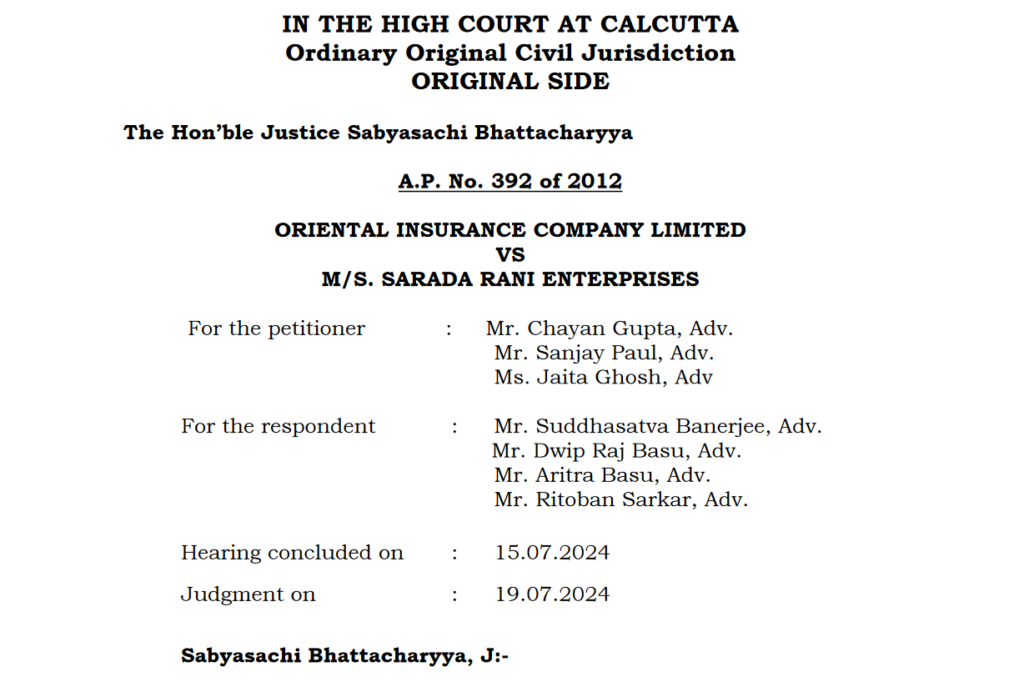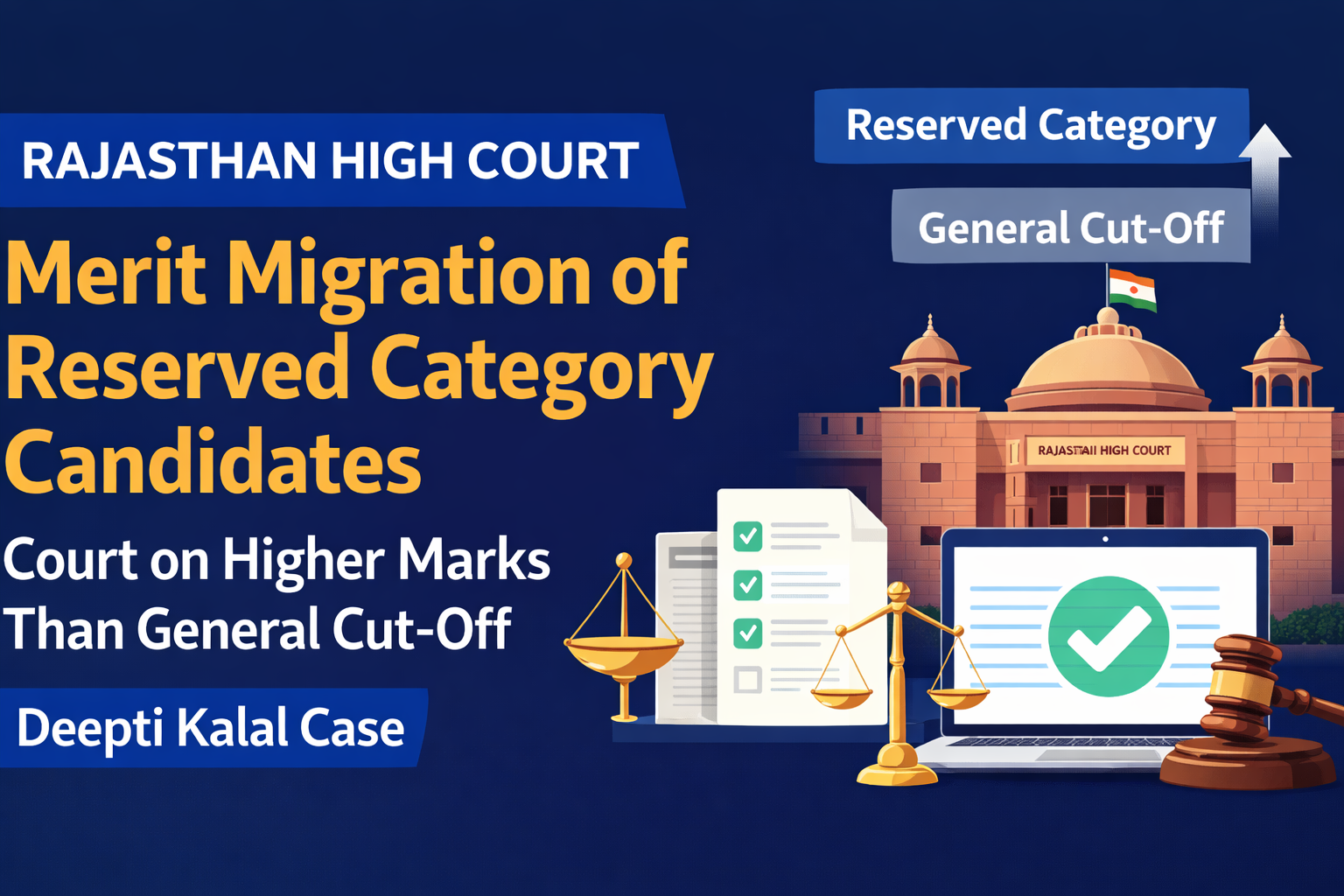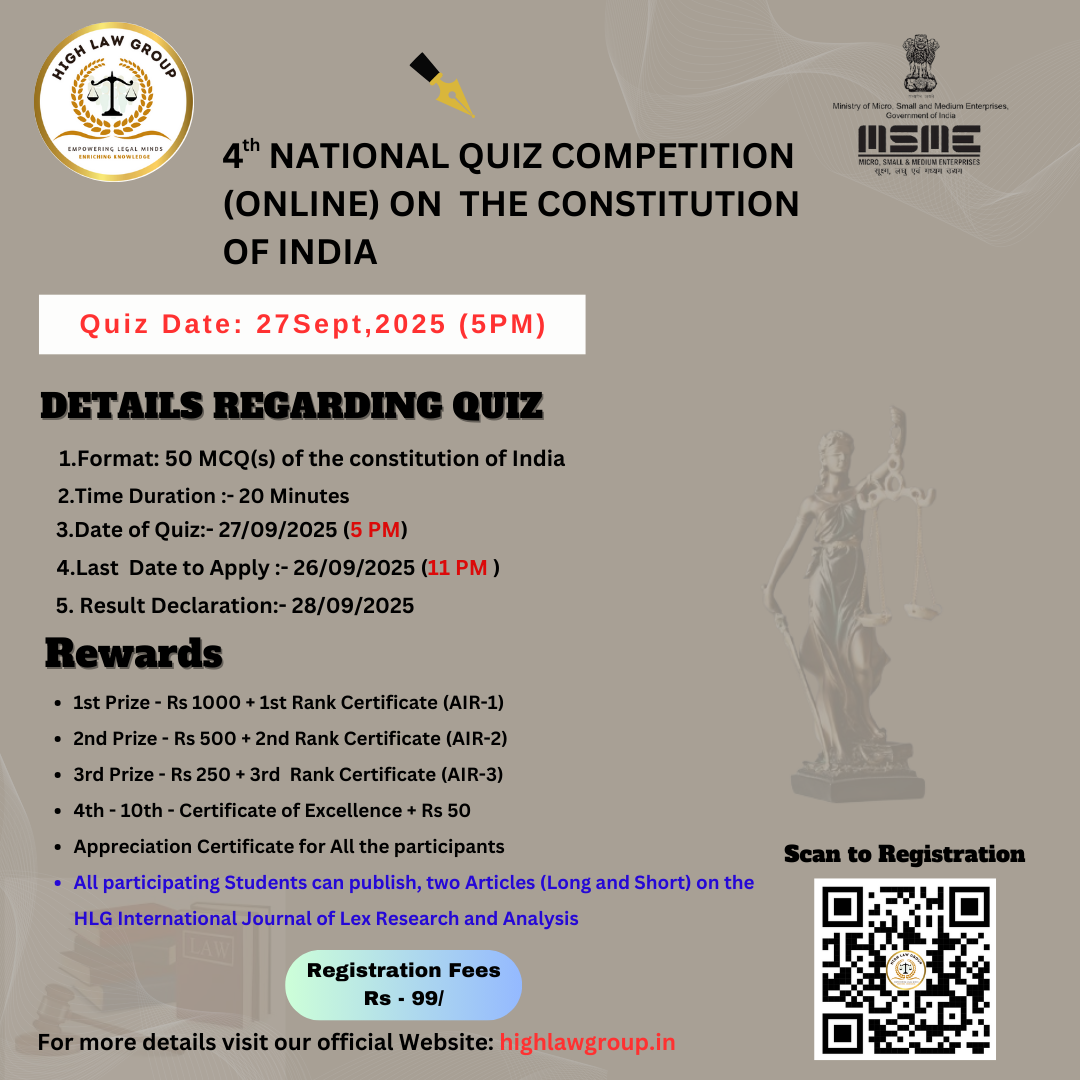Arbitrator’s Dependence on Unsubstantiated Evidence Breaches Fundamental Policy of India
Justice Sabyasachi Bhattacharyya of the Calcutta High Court has ruled that evidence lacking proper pleadings and verification or affidavit cannot be considere as substantiating a claim. The court stated that the arbitrator’s dependence on such evidence goes against the core principles of Indian law.
Furthermore, the bench clarifie that the arbitrator was not face with a situation requiring estimation due to the impossibility of determining an exact figure. Instead, it was found that the tribunal awarde an amount to the claimant arbitrarily, without any substantial basis.

Brief Facts
This case elaborates a dispute between Sarada Rani Innovations and Oriental Insurance Company Limited regarding an insurance claim. The Respondent, seeking compensation for damaged cement bags stored in their godowns, alleged significant business losses. They filed a claim with the Petitioner, their insurer.
The Arbitral Tribunal ruled in Favor of the Respondent. Dissatisfied with the award. The Petitioner challenged it in the High Court under Section 34 of the Arbitration and Conciliation Act, 1996.
The Petitioner argued that the Tribunal had wrongly disregarded two crucial reports. One from their surveyor and another from a court-appointed independent surveyor. These reports, they argued, were vital to the case. Instead, the Tribunal relied solely on Exhibit ‘T,’ a letter from the Respondent to the Petitioner, which the Petitioner claimed was insufficient to prove the claim.
Furthermore, the Petitioner contended that Exhibit ‘T’ contained vague and contradictory information. While mentioning a specific number of damaged cement bags, the quantity cited was significantly lower than what the Respondent claimed in their statement of claim.
Observations by the High Court:
The High Court observed that the evidence before the Arbitral Tribunal was mainly four documents:
First Document: A letter indicating that the Respondent was entitled to more than Rs. 60,00,000.
Second Document: A subsequent letter where the Petitioner claimed Rs. 1,13,27,208.
Third Document: A report by the insurance surveyor assessing the loss at Rs. 8,68,611 and the gross amount at Rs. 9,39,740. The tribunal did not rely on this report because it was not proves in evidence and was not accepte by the Respondent.
Fourth Document: A court-appointed surveyor’s report assessing the claim at Rs. 77,40,562. Although the Respondent accepted this report, the Arbitral Tribunal rejected it on solid grounds.
Regarding the surveyor’s report, the High Court held that the tribunal was right in rejecting it as it wasn’t formally prove, unlike the other two documents.
The High Court note that the only remaining evidence were two letters written by the Respondent. It found no valid reason why the tribunal based its decision solely on these letters. The letters were vague, mentioning an entitlement of over Rs. 60,000 without specifying the exact amount of damages.
Also Read More Legal news:- A Background of P. Sasikumar v. The State Rep. By The Inspector of Police
The Respondent made different claims at different times, leading to contradictions. The High Court ruled that these unilateral claims could not be relied upon as they were not supporte by proper verification or affidavit.
The High Court emphasized that the unilateral claims of the Respondent, which did not qualify as verified pleadings, could not be considere as proof.
Additionally, the High Court noted that this was not a case where the tribunal had to guess the amount reasonably. Instead, the tribunal arbitrarily granted an amount to the Respondent without any material basis.
The High Court denoted to the Supreme Court’s decisions in Dyna Technologies Private Limited vs. Crompton Greaves Limited (2019). and I-Pay Clearing Services Private Limited vs. ICICI Bank Limited (2022). It held that the grounds in Section 34(4) refer to a lack of reasoning by the Tribunal, not jurisdictional errors.
The High Court concluded that this case was not about a technical defect or lack of reasoning that could be correcte. There was no material before the Tribunal to justify the compensation granted to the Respondent, making the award arbitrary.
Therefore, the High Court set aside the impugned award.







Leave a Reply